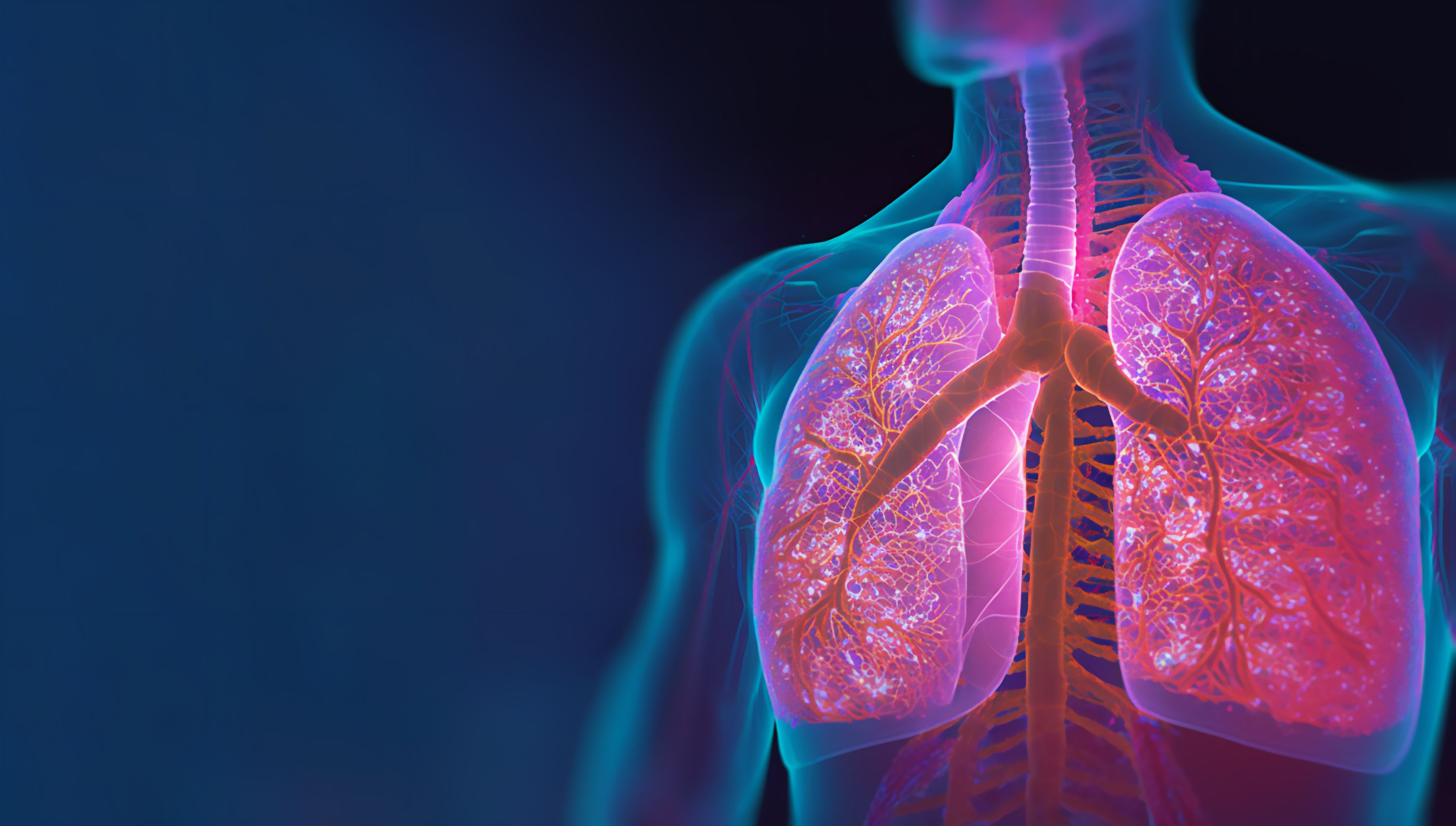Improvements in NSCLC With Neoadjuvant Nivolumab Observed
Findings from a 3-year follow-up of the Checkmate-816 trial demonstrated promising results with nivolumab and platinum-based chemotherapy, including improvements in event-free survival.
Holographic concept of lung cancer display, lung disease: © catalin - stock.adobe.com

Improvements in event-free survival (EFS), pathologic complete response (pCR), and major pathologic response (MPR) were observed in a 3-year follow-up of the phase 3 CheckMate-816 trial (NCT02998528) investigating neoadjuvant nivolumab (Opdivo) and chemotherapy vs chemotherapy alone for the treatment of patients with resectable non–small cell lung cancer (NSCLC). These improvements were demonstrated regardless of PD-L1 expression levels.1
“The 3-year results with neoadjuvant nivolumab with chemotherapy are a continuation of the statistically significant and clinically meaningful results we have seen with this regimen in the treatment of resectable [NSCLC], and they provide hope for patients that they may achieve long-term benefit,” said Mariano Provencio Pulla, MD, PhD Medical Oncology, Hospital Universitario Puerta de Hierro, Madrid, Spain, in a press release. “It is encouraging to see that this neoadjuvant immunotherapy combination has demonstrated improvements across efficacy measures, regardless of PD-L1 expression levels … The CheckMate-816 data clearly indicate the potential for better outcomes for patients with this regimen than chemotherapy alone.”
Overall survival (OS) data remains immature at this follow-up. However, the 3-year OS rates favor nivolumab and chemotherapy vs chemotherapy alone with 85% vs 66%, respectively. For patients with tumor PD-L1 expression ≥1%, nivolumab and chemotherapy reduced the risk of death by 63% (hazard ratio [HR], 0.37; 95% CI, 0.20-0.71). For patients with PD-L1 <1%, nivolumab and chemotherapy reduced the risk of death by 19% (HR, 0.81; 95% CI, 0.48-1.36), with 3-year OS rates of 71% vs 60% in the chemotherapy arm.
Three-year EFS rates were 72% among patients with tumor PD-L1 expression ≥1% in the nivolumab with chemotherapy arm vs 47% in the chemotherapy arm (HR, 0.46; 95% CI, 0.28-0.77). EFS rates were 42% among patients with tumor PD-L1 expression <1% who received nivolumab and chemotherapy vs 39% among patients who only received chemotherapy (HR, 0.87; 95% CI, 0.57-1.35).
pCR rates were 32.6% in patients with PD-L1 ≥1% who received nivolumab and chemotherapy vs 2.2% for patients who received chemotherapy alone, and 16.7% for patients with PD-L1 <1% who received nivolumab and chemotherapy compared with 2.6% for patients who received chemotherapy alone.
For MPR, rates were 44.9% among patients with PD-L1 ≥1% who received nivolumab and chemotherapy vs 5.6% among patients who only received chemotherapy. MPR rates were 29.5% for patients with PD-L1 <1% who received nivolumab and chemotherapy vs 14.3% for patients who only received chemotherapy.
In patients with tumor PD-L1 expression ≥1%, definitive surgery rates were 84% for patients who received nivolumab and chemotherapy vs 74% for patients who only received chemotherapy. Complete resection was achieved in 91% vs 82% for patients with tumor PD-L1 expression ≥1% who received nivolumab and chemotherapy vs chemotherapy alone. In patients with tumor PD-L1 expression <1%, complete resection was achieved in 79% in patients who received nivolumab and chemotherapy vs 76% in patients who received chemotherapy alone.
For safety, the safety profile was consistent across all PD-L1 subgroups.1
A total of 505 patients with early stage IB-IIIA operable NSCLC were enrolled in the study. Patients needed to have lung function capable of tolerating surgery and an ECOG performance status of 0 or 1 to be eligible to participate. Patients were not eligible to participate if they had active or suspected autoimmune disease or had received prior treatment with any drug that targets T cell co-stimulation pathways. The study has an estimated completion date of November 2028.2
The full results will be presented at the European Society of Medical Oncology Congress 2023 on October 23, 2023.1







